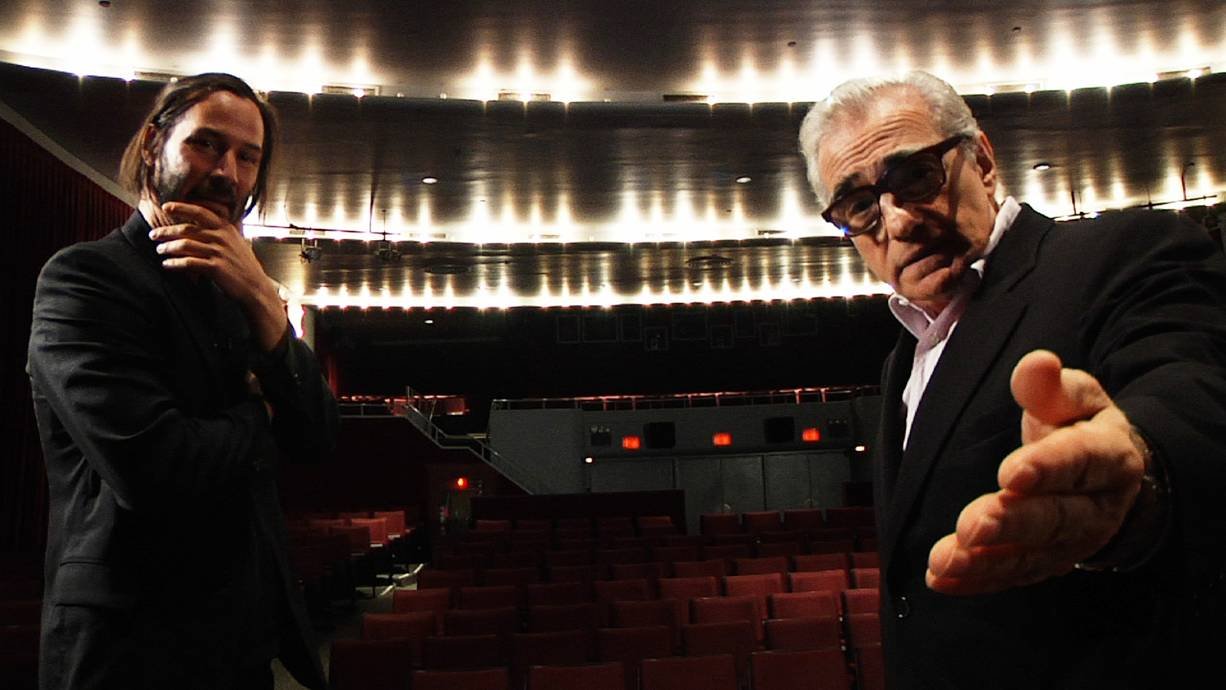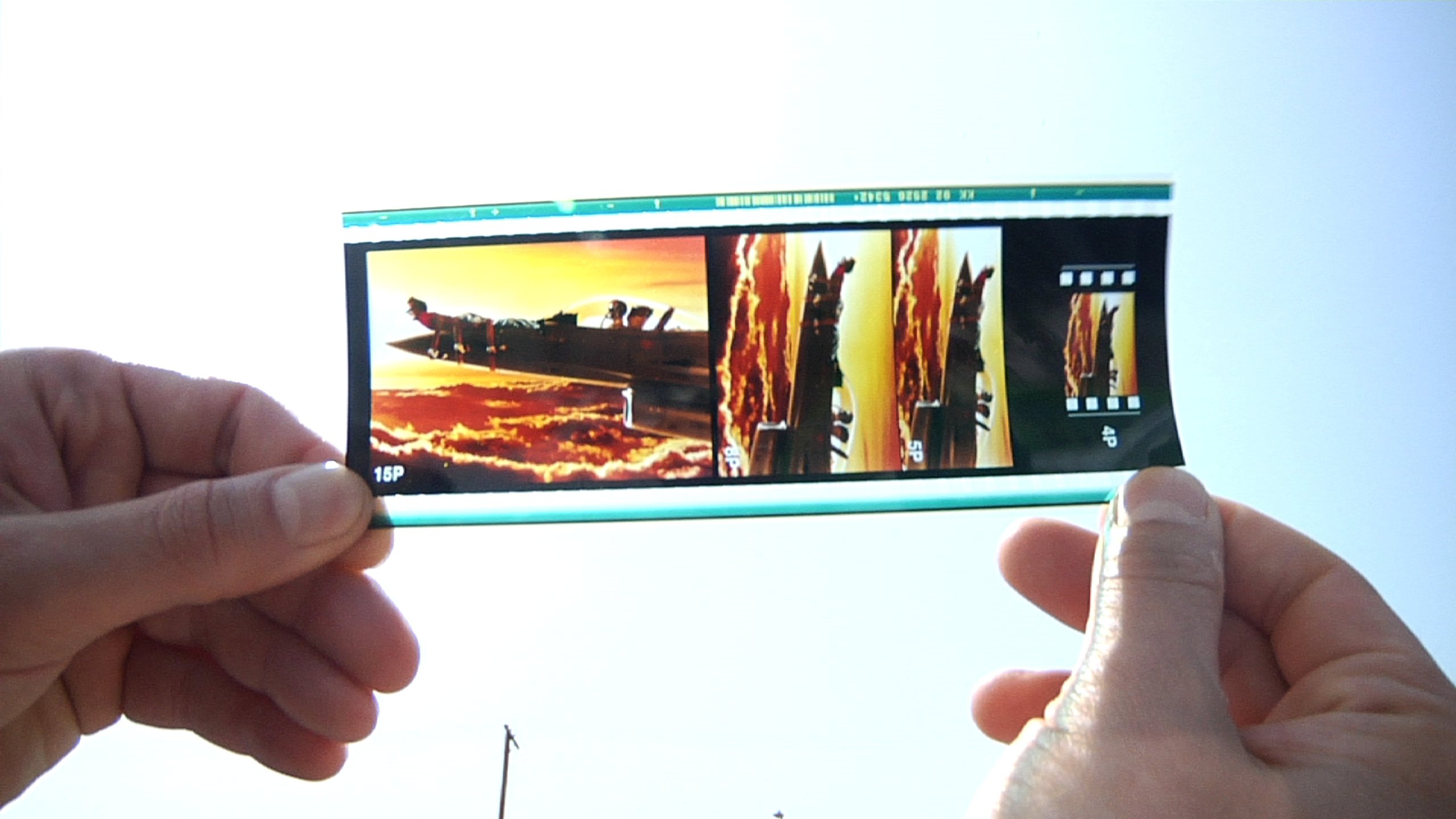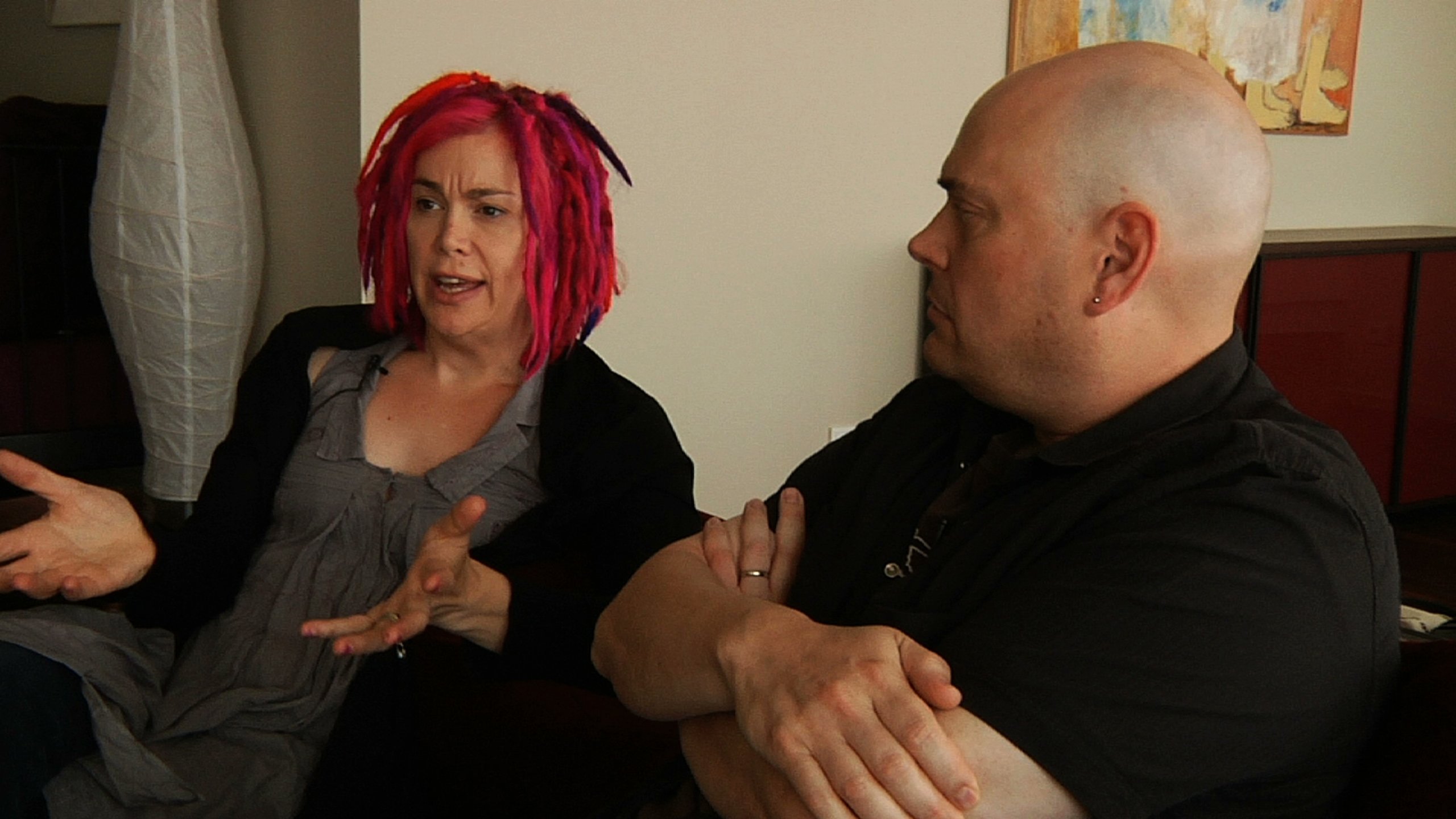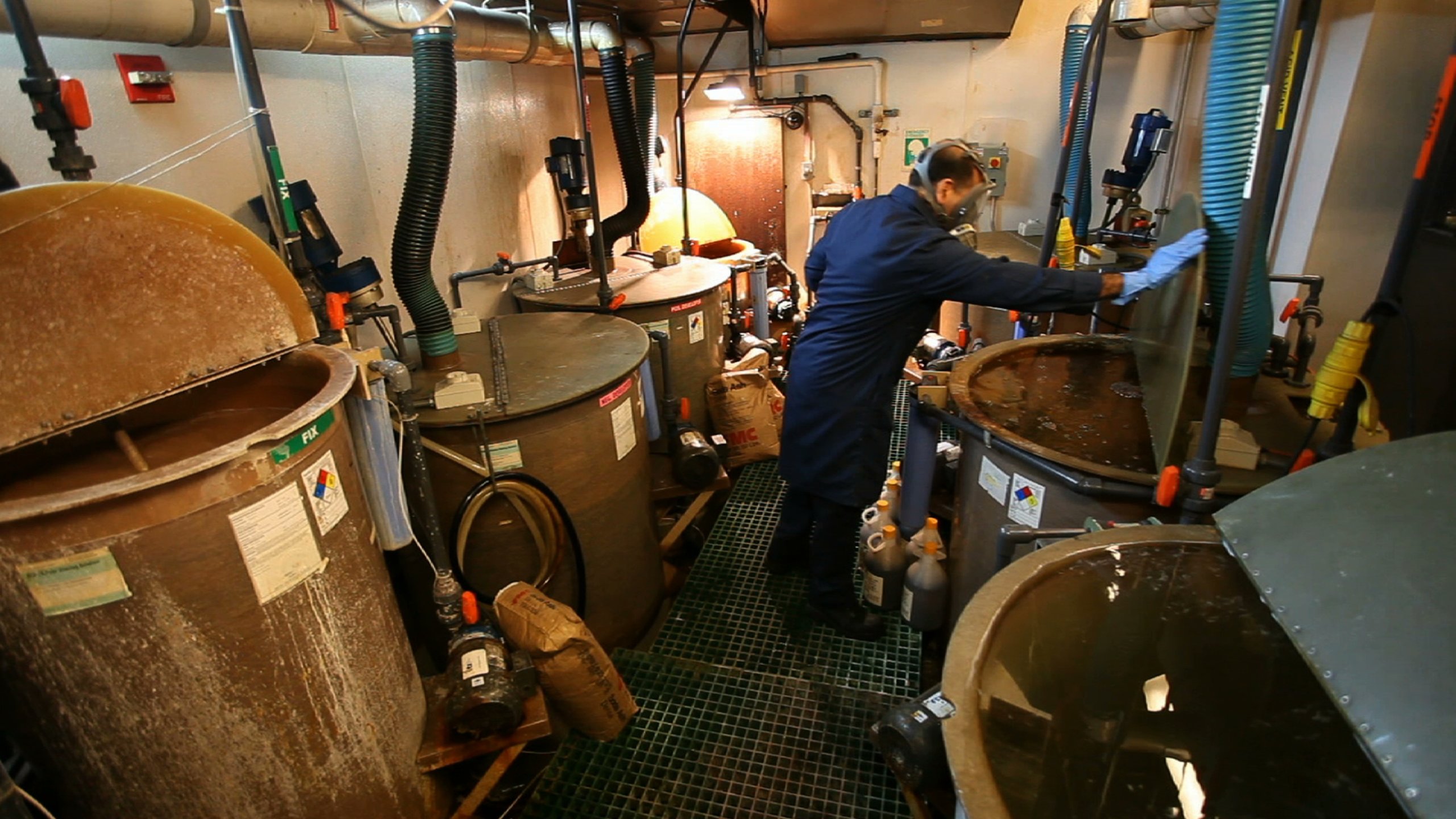






Side by Side
S**G
Fantastic Documentary on a New Revolution
Side by Side does a terrific job of showing how advancements in almost any area of life are originally resisted, then eventually accepted. Change, even positive change is resisted almost out of nothing but habit. Where we are, even if it doesn't serve us as well, is preferred not because it's better but just because it's familiar.It's great to see top directors getting behind the advancements in digital. It's also interesting to see who is holding back the movement. The best thing about this whole idea is that it's taken Hollywood's monolopy away on film making. It used to be that you needed millions of dollars, lots of expensive equipment and a massive crew to shoot a film that was cinema worthy. Not so anymore. Now...anyone can make a film of such quality. I think a lot of Hollywood movers and shakers that are resisting digital are feeling threatened and insecure by this democratization of film making. It's no longer the secret trade of a handful of people with the know-how and the cash. As the young female director put it, "I thought you had to be a dude who knew how to operate complicated machinery to make a movie."Yes, it also means some bad films made by some guy in his backyard or college buddies messing around will flood the internet and maybe even get to the cinema...but bad films have always been around. I'm sure you've seen more than your fair share of terrible movies shot on celluloid that you paid good money to view in the theater. Digitally speaking...at least you don't lose any money if you've watched them online.Not mentioned in this film is the argument that digital often looks "too real". What does that mean? It makes no sense that someone would complain that ditigal is too crisp and clear when we shop for TVs that have super-high resolution and buy films on Blue Ray now, anyway.Film is going away and I, for one am excited about the possibilities. The future IS bright. It just depend on the lens your'e viewing it through.
C**5
An excellent example of disruptional technology
If you are a fan of Clayton Christensen's "The Innovator's Dilemma" and other books that were made even more famous with Steve Jobs endorsement for his use on Apple products, this film will show you the human side of a disruptional technology familiar to us all: digital video and how it has essentially dislocated all photochemical-based motion pictures.My initial viewing of this film was via Amazon Prime streaming video, but the film continues to fascinate me each time to the point that I bought a Blu-Ray disk to enjoy not only the main film, but also some of the rather brief outtakes and deleted scenes, which, in themselves are of interest to folks like me that study technology cycles and their effects on organizational culture. This film is literally brimming with face-to-face interviews of film-industry directors, directors of photography (DPs, a.k.a. cinematographers), film and digital colorists, film vs. digital editors, new digital camera manufacturers (like Red) and their sales staff, and finally Keanu Reeves, who serves as the host interviewer.Although the interviews are straightforward and are conducted in real-time, i.e., cut-and-break sequences are not used, I see something different that I missed each time that I've watched them: suppressed, seemingly rational-but-actually irrational reasoning, or otherwise obtuse rationale for opposing the introduction of high quality digital video. This includes perceived loss of control, loss of nostalgia, loss of film-unique special effects, self-archiving properties of film (actually, this is not a valid point), and other even more obtuse rationale, such as "I don't like digital -- because it makes it too easy". This from major film figures--including well known directors.It also puts into perspective an industry that actually cares what their customers think about their products' technical quality--as opposed to, for instance, the music recording industry that obviously doesn't care, as evidenced by "loudness war" digital audio media. I can't begin to tell you of the many lessons learned and enjoyment at watching these interviews as the film unfolds by subject area and by time of technology insertion into the industry.Highly recommended, including the short "extras" on the BD version.
L**T
Excellent movie for explaining the technical developments of movie making
Excellent movie for explaining the technical developments of movie making, with footage and relevant interviews from masters of the medium.
S**.
"Side By Side" : a must see documentary / Documentaire à voir pour les amateurs
Well constructed and documented film, so rich, with clips to illustrate what's said. Explains the "how to" of the processes behind film making without being a lecture. This will not teach you how to make a film, but how right now, people involved in film making are facing the digital era vs the celluloid they were used to. As announced, focused is made on film vs digital film making and the implication of each technology within the process. Interviews are wonderfully well led. You'll be invited to make your own opinion... AMAZING WORK by Chris Kenneally and Keanu Reeves. European viewers watch out: this is a ZONE 1 DVD without subtitles.Ce documentaire est vraiment bien construit et documenté. Des extraits de films viennent illustrer les propos tenus. "Side By Side" vous présente les différences, les "pour & contre" de chaque technique selon les opinions des personnes rencontrées, qui partagent leurs expériences. Les interviews sont très bien menées. Ce n'est pas un cours et ne vous apprendra pas à faire un film mais vous permettra de comprendre pas mal de choses si le sujet vous intéresse. Vous conservez la liberté de vous faire VOTRE propre opinion à la fin. Un documentaire réussi: bravo à Messieurs Kenneally et Reeves! Attention amis européens: dvd ZONE 1 sans sous-titres.
M**.
ECCELLENTE
Un documentario imperdibile per chi ama il cinema, interessante sia per gli addetti ai lavori che per meno esperti.Una panoramica sulla storia e sullo stato dell'arte del media cinematografico ovvero sul passaggio dalla pellicola all'acquisizione digitale, esplorato da un punto di vista tecnico (compresibile per tutti) ma soprattutto artistico, con i contributi di registi, direttori della fotografia, attori, coloristi, produttori, per citarne alcuni Scorsese, Lucas, Lynch, Fincher, Boyle, Rodriguez, i Wachowski...Dalla 35mm alla Red, dai daylies alla CC alla rivoluzione delle DSLR, tutto quello che serve per farsi un'idea di dove sta andando l'industria... e di cosa sta lasciando per strada.Solo inglese senza sottotitoli, nel secondo disco le interviste integrali agli ospiti principali.
K**S
Excellent documantary about cinema.
Having worked in the cinema industry for most of my life I found this documantary to be very informative in many ways and slightly sad in others.The passing of an era when films were predominantly shot on 35 or 65 mm celluloid stock and projected in cinemas by people who really cared about their profession and about the best possible presentation of the film to the audience.Sadly those days are long gone as are all the projectionists.These days it would seem no matter how many millions of dollars and how much time is spent on producing block buster movies the targeted audience 13 to 25 year olds don't care about pure cinema presentation anymore.They are quite happy to spend large sums of money to watch the latest hollywood block buster presented in multi-plex cinemas out of focus, in the wrong ratio, with actors heads disappearing off the top of the screen and the sound so loud that it hurts.If I were a film maker these days I just wouldn't bother.Athough this film doesn't really touch on that aspect of the dying industry it is well worth watching if only for the range of excellent film makers interviewed by Keanu Reeves. and their varied opinions on the future of cinema as an art form.
早**岬
手際よくまとめれられた秀作。
ここ15年ほどで映画撮影は従来のフィルムからデジタルカメラでデータ保存という方式に移行していった。別にフィルムは絶滅したわけではないが、VFX駆使した映画はもうほとんどデジタル撮影だ。キアヌ・リーブスが企画し自らハリウッドおよびインディーズの重鎮にインタビューしてゆく。相手は監督と撮影監督が主であり、彼らが語るフィルム時代のルーティンとデジタル台頭による変化は聞いていてとても興味深い。またほとんどの人がデジタルに前向きであり、その技術進化に注目し続けているあたりはさすがだと感じた。一般劇場での上映方式がデジタルに移行しつつある点も忘れずに取り上げている。音楽業界ではデジタルへの移行は80年代からもう始まっていた。巨大スクリーンへの映写に耐える映像をデジタルで作るには重いデータの扱いと解像度が問題だったが、特に2010年代に入ってフィルム撮影にひけをとらないレベルまで来たように思う。個人的には昔のフィルム傷や心地よくぼけていく奥行き感を懐かしく思う半面、デジタルのパキッとした感触もまた大好きだし、このドキュメンタリーに登場する監督も同様のことを述べている。BDのおまけ映像にはインタビューが長めに入っていてこれも面白い。
Trustpilot
1 day ago
1 month ago